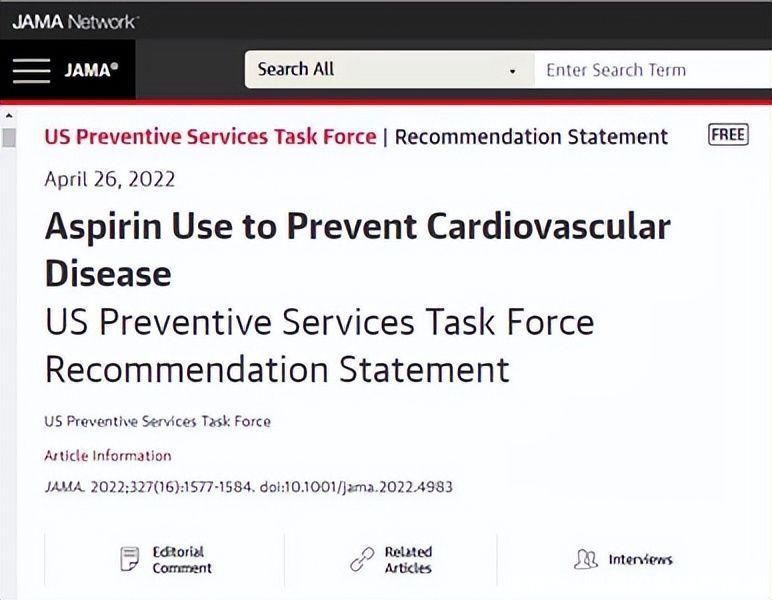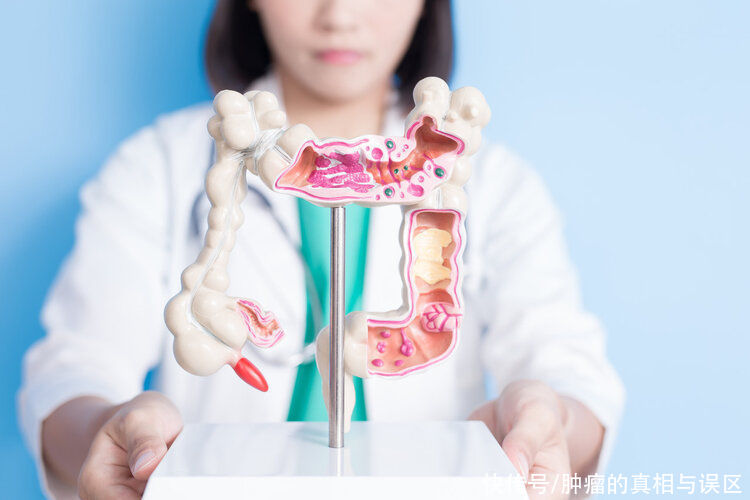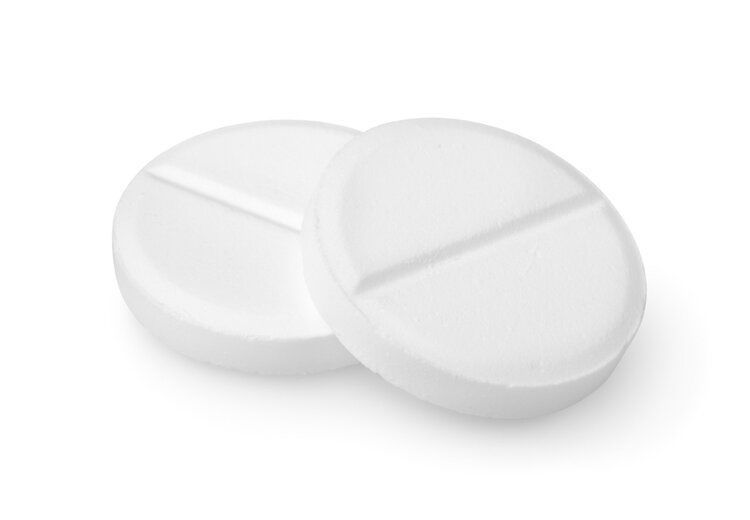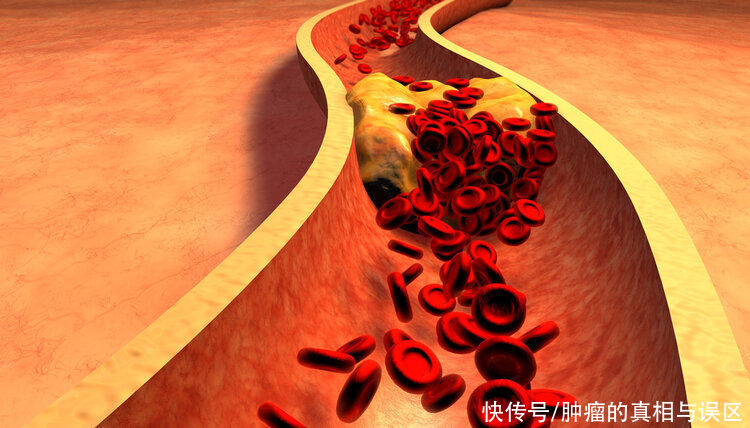“Isn’t it said that aspirin can prevent stroke, how did I eat stomach bleeding?”
Mr. Ma is 39 years old this year, and he had a physical examination about three years ago Hypertension was detected. Since he was diagnosed with high blood pressure, he has been very frightened in his heart. He always heard others say that he is prone to myocardial infarction and cerebral infarction. Then he accidentally discovered that a relative who had a stroke before was taking aspirin to prevent blood clots, so he also started taking aspirin. Take one tablet every morning and one tablet at night.
After eating for several years, about a week ago, Mr. Ma suddenly had abdominal pain and was rushed to the hospital. The doctor did a gastroscope and found that Mr. Ma was bleeding in his stomach, and there was Multiple ulcers.

After a detailed consultation, the doctor learned that Mr. Ma had been taking aspirin for a long time, so he diagnosed It was aspirin that caused the acute stomach bleeding.
These Mr. Ma are puzzled, doesn’t it mean that aspirin can prevent blood clots and myocardial infarction? Why do you eat stomach bleeding instead? Only then did the doctor tell him that not everyone is suitable for taking aspirin and needs to undergo professional evaluation. Every year, there are many patients who abuse aspirin and have stomach bleeding like Mr. Ma.
Aspirin was born in 1899 and has been around for more than 100 years. It has always been regarded as a holy medicine for cardiovascular disease. It can prevent platelets from piling up in blood vessels, preventing thrombosis, and even in It also has potential in anti-cancer and is recommended by doctors to many patients. But a growing body of research shows that aspirin isn’t for everyone.

First, the new statement in the United States: no cardiovascular disease, aspirin is not recommended for people over 60 years old
h1>
Recently, US Preventive Services Task Force published a report on the role of aspirin in atherosclerotic cardiovascular disease A new statement on primary prevention recommends that the use of low-dose (81 mg) aspirin as primary prevention of cardiovascular disease in adults aged 40-59 years with a 10-year cardiovascular risk ≥10% should be individualized, It’s up to you,low-dose aspirin is not recommended for adults ≥60 years of age as a first-degree cardiovascular disease Prevention.

Why did you update your aspirin recommendations?
The working group assessed the net benefit of primary prevention with medication and found:
1, 40 Adults ~59 years old with a 10-year CVD risk ≥10% had a small net benefit from aspirin for primary prevention.
2. Adults ≥60 years of age have no net benefit with aspirin for primary prevention, and are at greater risk of bleeding .
3. Based on 24 recent analyses of evidence from major cardiovascular disease prevention populations, 14, and long-term follow-up data from the Women’s Health Study (WHS), statistics There is insufficient evidence for low-dose aspirin to reduce colorectal cancer incidence or mortality.

Second, long term Taking aspirin, these side effects are very important
Although aspirin is widely used and has good effects, it is also the first choice for preventing thrombosis, but its adverse reactions cannot be ignored. of.
1. Bleeding
A typical dose of aspirin can inhibit platelet aggregation and prolong bleeding time. However, long-term or high-dose aspirin will prolong the clotting time and cause bleeding.
2. Stomach injury
High-dose aspirin can cause epigastric discomfort, heartburn , induce and aggravate ulcers, and can irritate the brain, causing nausea and vomiting.
3. Injury to the kidney
A few patients with heart, liver and kidney function damage are affected by aspirin. Patients can cause symptoms of impaired renal tubular function such as edema.
4. Allergies
After taking aspirin, some patients have urticaria, vascular nerve Sexual edema or even anaphylactic shock, and even a small number of patients can induce asthma.
5. Salicylic acid reaction
After taking aspirin, if you have headache, Dizziness, nausea, vomiting, high fever, sweating, etc., are likely to be caused by salicylic acid poisoning after medication, and the medication should be stopped immediately.

Third, aspirin Don’t eat? 3 types of people should not take it
Before answering, let’s see what the Chinese people’s own research says.
In “Chinese Guidelines for Primary Prevention of Cardiovascular Diseases”, the use of aspirin is only recommended, Patients aged 40-70 years with high risk of atherosclerotic cardiovascular disease (ASCVD, including coronary heart disease, myocardial infarction, heart failure, stroke, etc.) and with at least one risk-enhancing factor but no high-risk bleeding risk< /span>, consider using low-dose aspirin (70-100 mg/d) for primary prevention of ASCVD.
The following three types of people are Aspirin is not recommended for primary prevention:
1, patients with intermediate and low risk of atherosclerotic cardiovascular disease; span>
2, patients younger than 40 years and patients older than 70 years;
3. Patients assessed to be at high risk of bleeding.

Huang Jiawen, the pharmacist in charge of the First Affiliated Hospital of Jinan University once said that patients who already suffer from cardiovascular disease still need to take aspirin according to the condition and according to the doctor’s advice, and cannot stop at will Medications. Especially in patients who have undergone cardiac bypass, cardiac stent, or previous ischemic stroke strong>, the benefits of taking aspirin far outweigh the risk of bleeding, so do not stop taking it without authorization. Aspirin prevention is generally not recommended for people who have no disease, are at low risk, and do not have any cardiac discomfort.
Fourth, protect the heart but hurt the stomach, I’m afraid you are not using it
Although aspirin is in There are achievements in preventing cardiovascular and cerebrovascular diseases, but it is not a panacea. Before taking it, you must pay attention to these precautions:
1. You need to consult a doctor before taking it. Professional evaluation of
Before taking the medicine, it should be evaluated by a doctor before taking the dosage. If doctors are inaccurate in assessing a patient’s risk of heart attack or stroke, aspirin’s preventive effect cannot be achieved.
2. Strictly follow the dosage and do not make up for one or two missed doses
Comprehensive analysis of a large number of data found that 50-100 mg of aspirin per day (mostly recommended 75 mg per day) is an appropriate dose for long-term use, which can not only achieve the best preventive effect, but also reduce drug toxicity.
In addition, the inhibition of platelets by aspirin is permanent unless it is new platelets. About 10% of platelets are regenerated every day, so missing 1 or 2 doses of aspirin has no obvious effect on the prevention of thrombosis, and there is no need to deliberately add more doses.

3. Avoid and take some medicines
Aspirin will interact with other drugs. Taking it together with vitamin B1 can increase the gastrointestinal reaction of patients; taking it with diuretics can easily cause salicylic acid poisoning; Combination of dicoumarin, which is easy to cause bleeding risk; combined with adrenal cortex hormones, is easy to induce ulcers.
4. Discontinuation should be done under the guidance of a doctor
long-term use of aspirin Patients, such as sudden discontinuation of the drug for some reason (such as surgery, tooth extraction, bleeding or allergy, non-compliance with medical advice, etc.), can induce new cardiovascular events in a short period of time. Therefore, it should be done under the guidance of a doctor before stopping the drug.
5. Seek immediate medical attention if adverse reactions occur
Any upper abdominal discomfort occurs during the medication , such as nausea, vomiting, abdominal pain, abdominal distension, anorexia, acid regurgitation, belching, heartburn, burning sensation, etc.; or hematoma, epistaxis, genitourinary bleeding, bleeding gums, etc., should seek medical attention in time.
Although aspirin is a drug for the primary prevention of cardiovascular disease, it has clear adverse effects on the digestive tract, and also has gastric bleeding and even fatal side effects. Therefore, before taking medicine, you must communicate with your doctor or pharmacist and adjust the treatment plan in time. #Number Weekly#
References:
[1]US Preventive Services Task Force. Aspirin Use to Prevent Cardiovascular Disease: US Preventive Services Task Force Recommendation Statement. JAMA. 2022, 327(16): 1577-1584.
[2] Guidelines for Primary Prevention of Cardiovascular Diseases in China[J]. Journal of Practical Cardiovascular and Cerebrovascular Diseases, 2021,29( 01):44+64.
[3]Can I still eat aspirin after walking down the “altar”? The First Affiliated Hospital of Jinan University.2019-03-15
Do not reprint without author’s permission